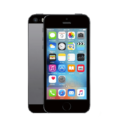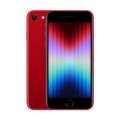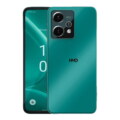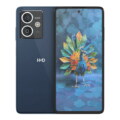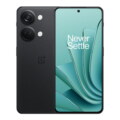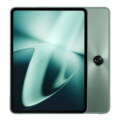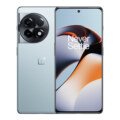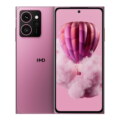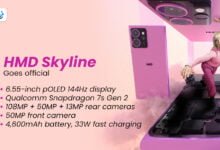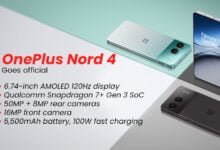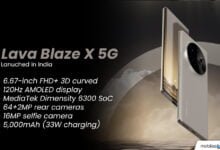- Home
- All Products
- Apple
- Apple iPhone 8 Plus
Apple iPhone 8 Plus

Apple iPhone 8 Plus Summary
Apple iPhone 8 Plus smartphone was announced in September 2017. The phone has a 5.5-inch touchscreen display offering a resolution of 1080 x 1920 pixels at a pixel density of 401 pixels per inch (ppi). A one-core Apple A11 processor powers the iPhone 8. It comes with 3GB of RAM.
Regarding the cameras, the iPhone 8 packs a 12-megapixel camera on the rear. It has a 7-megapixel front-facing camera for taking selfies.
Apple iPhone 8 Plus operates on iOS 11 and includes 32GB,128GB, and 256GB of internal storage. This mobile phone accepts only one Nano-SIM (GSM) card. Its dimensions are 158.4×78.1×7.5 mm (height x width x thickness), and it weighs 202.00 grams. It’s available in Jet Black, Black, Silver, Gold, and Rose Gold colors.
Connectivity options on the iPhone 8 Plus include Wi-Fi 802.11 a/b/g/n/ac, GPS, Bluetooth v5.0, NFC, 3G, and 4G. The Sensors on the iPhone 8 Plus have an accelerometer, ambient light sensor, barometer, gyroscope, proximity sensor, and compass/ magnetometer.
Specifications
Network
| Technology | GSM / HSPA / LTE |
| 2G Bands | GSM 850 / 900 / 1800 / 1900 |
| 3G Bands | HSDPA 850 / 900 / 1700(AWS) / 1900 / 2100 |
| 4G Bands | 1, 2, 3, 4, 5, 7, 8, 12, 13, 17, 18, 19, 20, 25, 26, 28, 29, 30, 34, 38, 39, 40, 41, 66 |
| Speed |
HSPA 42.2/5.76 Mbps, LTE (3CA) Cat12 600/150 Mbps, EV-DO Rev.A 3.1 Mbps |
Launch
| Announced | 2017, September 12. Released 2017, September 22 |
| Status | Discontinued |
Body
| Dimensions | 158.4 x 78.1 x 7.5 mm (6.24 x 3.07 x 0.30 in) |
| Weight | 202 g (7.13 oz) |
| Build | Glass front (Corning-made glass), glass back (Corning-made glass), aluminum frame |
| SIM | Nano-SIM |
Display
| Display Type | Retina IPS LCD, 625 nits (typ) |
| Size | 5.5 inches, 83.4 cm2 (~67.4% screen-to-body ratio) |
| Resolution | 1080 x 1920 pixels, 16:9 ratio (~401 ppi density) |
| Protection | Ion-strengthened glass |
| Extra Features | 3D Touch display & home button |
Memory
| Expandable | No |
| Internal Internal Storage is a data storage space (flash memory) mostly used in smartphones, tablets and other electronic devices where operating system, apps, music, photos, videos, files and other user data Is stored. | 64GB 3GB RAM, 128GB 3GB RAM, 256GB 3GB RAM |
| Extra | NVMe |
Software
| OS OS => Every computer system run on a base software called Operating System (OS). Operating System controls all basic operations of the computer (such as smartphone, PDAs, tablet computers and other handheld devices). The Operating System allows the user to install and run third party applications (apps), apps are used to add new functionality to the device. | iOS 11, up to iOS 16.6.1.1 |
| Chipset Chipset is a group of integrated circuits designed to perform one or a more dedicated functions, often with real time computing constraints, Popular smartphones are equipped with more advanced embedded chipsets that can do many different tasks depending on their programming. | Apple A11 Bionic (10 nm) |
| CPU CPU (Central Processing Unit) mostly known as processors, CPU processes instructions in order to carry out certain functions that make your device operate properly. Processors are often described as the brain of computers, smartphones and tablets, Smartphones and tablets rely on processors to carry out their every task, Processors are an incredibly important factor in selecting any type of computing device, including your smartphone. | Hexa-core (2x Monsoon + 4x Mistral) |
| GPU GPU (Graphics Processing Unit) is a single-chip processor designed to rapidly manipulate and alter memory to accelerate the creation of images in a frame buffer intended for output to a display, This includes things such as lighting effects, object transformations, and 3D motion. | Apple GPU (three-core graphics) |
Camera
| Rear Dual |
• 12 MP, f/1.8, 28mm (wide), PDAF, OIS • 12 MP, f/2.8, 57mm (telephoto), PDAF, 2x optical zoom |
| Features |
• Quad-LED dual-tone flash, HDR • Face detection, HDR |
| Rear Video | 4K@24/30/60fps, 1080p@30/60/120/240fps |
| Front camera | 7 MP, f/2.2, 32mm (standard) |
| Front Video | 1080p@30fps |
Features
| Sensors Sensors are electronic components that detects and responds to some type of input from the physical environment. The specific input could be light, heat, motion, moisture, pressure and location, The output is generally a signal that is converted to use in computing systems, a location sensor, such as a GPS receiver is able to detect current location of your electronic device. | Accelerometer, gyro, proximity, compass, barometer, Fingerprint (front mounted) |
| Sound | Speaker Phone with stereo speakers |
| Messaging | iMessage, SMS (threaded view), MMS, Email, Push Email |
| Browser Web Browser => a web browser is a software application used to locate, retrieve and display content on the World Wide Web, including Web pages, images, video and other files, The primary function of a web browser is to render HTML, the code used to design or markup webpages. | HTML5 (Safari) |
| Games | Built-in + Downloadable |
| Touch Screen | Yes |
| Extra |
• IP67 dust/water resistant (up to 1m for 30 min) • Apple Pay (Visa, MasterCard, AMEX certified) |
Connectivity
| WLAN | Wi-Fi 802.11 a/b/g/n/ac, dual-band, hotspot |
| Bluetooth Bluetooth is a wireless communications technology for exchanging data between mobile phones, headsets, computers and other network devices over short distances without wires, Bluetooth technology was primarily designed to support simple wireless networking of personal consumer devices. | 5.0, A2DP, LE |
| GPS GPS The Global Positioning System is a satellite-based radio navigation system, GPS permits users to determine their position, velocity and the time 24 hours a day, in all weather, anywhere in the world, In order to locate your position, your device or GPS receiver must have a clear view of the sky. | Yes + A-GPS support & Glonass, BDS, GALILEO |
| NFC NFC (Near field communication) is a set of standards for smartphones and similar devices to establish peer-to-peer radio communications with each other by touching them together or bringing them into proximity, usually no more than a few inches. | Yes |
| Radio | No |
| USB | Lightning, USB 2.0 |
Battery
| Battery Type Battery Type => Cell phones run on various kinds of batteries depending on the manufacturer, phone size or shape and features. There are basically four types of cell phone batteries => Lithium Polymer, Lithium Ion, Nickel Metal Hydride and Nickel Cadmium. | Li-Ion (Lithium Ion) |
| Capacity Battery Capacity is a measure (typically in Amp-hr) of the charge stored by the battery, and is determined by the mass of active material contained in the battery. The battery capacity represents the maximum amount of energy that can be extracted from the battery under certain conditions. | 2691 mAh, non-removable (10.28 Wh) |
| Charging Wireless Charging (Inductive Charging) uses an electromagnetic field to transfer energy between two objects. This is usually done with a charging station. Energy is sent through an inductive coupling to an electrical device, which can then use that energy to charge batteries or run the device. |
• 15W wired, PD2.0, 50% in 30 min (advertised) • Wireless (Qi) |
| Talk Time Talk Time is the longest time that a single battery charge will last when you are constantly talking on the phone under perfect conditions, Ambient temperature and highly dependent on the cellular network environment such as the distance to the closest cell network tower. | Up to 21 h (3G) |
MORE
| Colors | Jet Black, Black, Silver, Gold, Rose Gold |
| Models | A1864, A1897, A1898, , A1899, iPhone10,2, iPhone10,5 |
| Versions |
• A1864 (USA, Hong Kong, Australia, New Zealand, China) • A1897 (EMEA, UAE, LATAM, Canada, USA - AT&T/T-Mobile, Singapore) • A1898 (Japan) |
| Price | About €340 |
Disclaimer Note
We can not guarantee that the information on this page is 100% correct.
